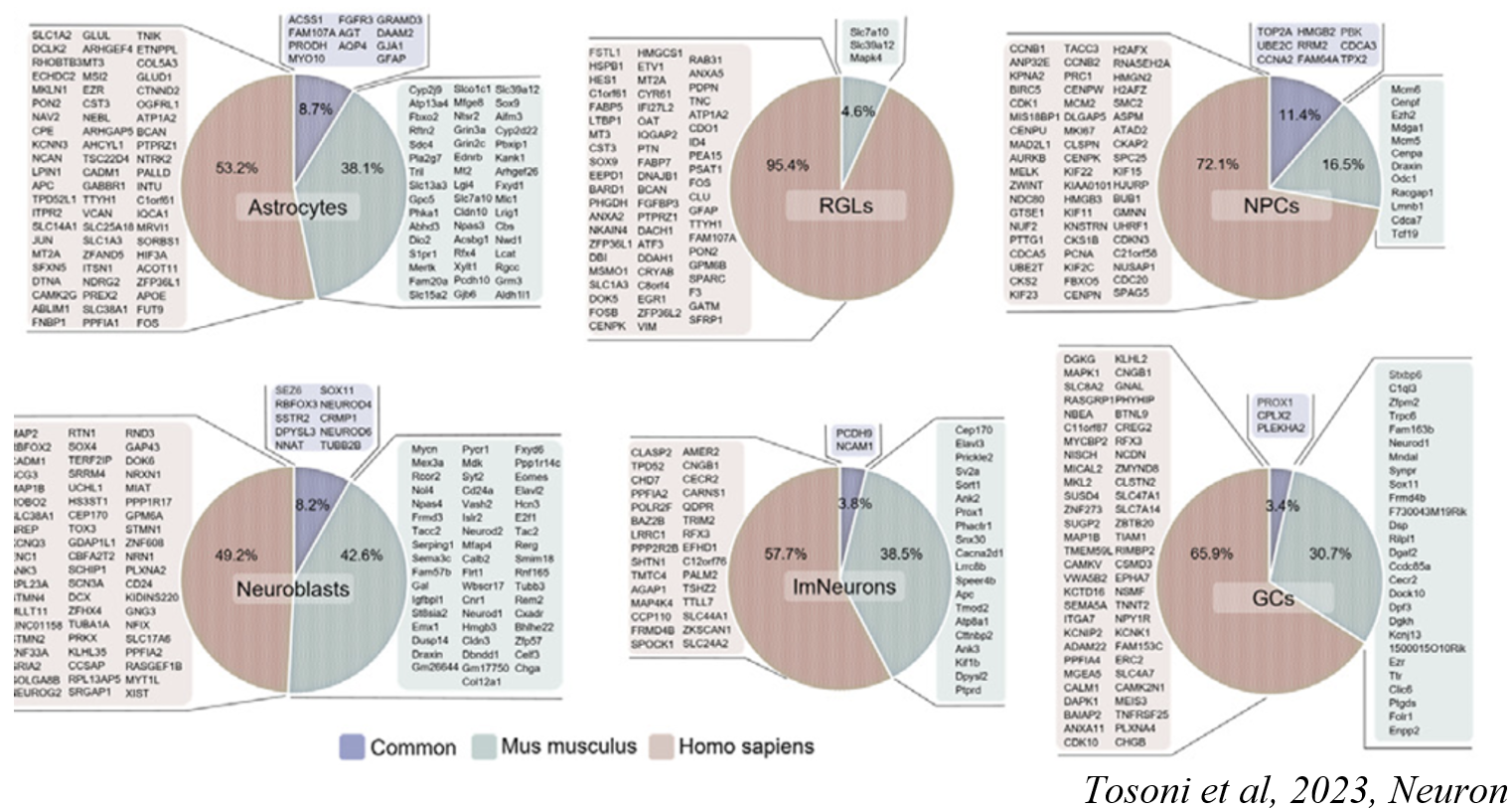
Location: This collaborative project will be primarily performed at the Netherlands Institute for Neuroscience at the Salta group under the supervision of E. Salta, G. Tosoni, D. Ayyildiz with O. Basak as co-supervisor.
Duration and start date: Jan/Feb ’24 onwards for 6/9 months.
Identity of the intern: The applicant must be enrolled in a master program in the Netherlands.
Requirements: Basic level of computational skills in R/python/bash are expected. Students will be given advanced training on the topic relevant to the project. Knowledge in neuroscience, single cell data analysis or machine learning tools is highly appreciated.
Background: The existence of adult hippocampal neurogenesis (AHN) in the human brain and its putative contribution to the Alzheimer’s disease (AD) susceptibility or resilience have been under intense debate over the last years. In this ongoing project, the Salta lab employ single-nucleus RNA sequencing (snRNA-seq) technology in the human adult hippocampal neurogenic niche to profile cell type-specific molecular signatures of AHN and their changes during AD pathology and in resilient brains.
Aim and objectives: Multiple projects are available. For more info you can contact us.
Briefly:
- Integration across datasets: Your contribution to our project will involve the integration of our in-house dataset of the Salta lab with recently published human (Franjic et al. 2022, Zhou et al. 2022, Wang et al. 2022), mouse (Hochgerner et al. 2018) and macaque (Hao et al. 2022) hippocampal datasets to form a unifying atlas and perform cross species comparison. Techniques to be employed: You will mainly use Ensembl BioMart for orthologous mapping, Seurat and Scanpy to test various data integration methods such as Harmony, fastMNN, LIGER, Scanorama, scVI, scANVI, SeuratV4CCA and SeuratV4RPCA (Song Y., 2023).
- Cross-Comparative Analysis of Adult and Fetal Brain scRNA-seq Data through Machine Learning: As ‘positive control’ to identify (rare and previously uncharacterized) neurogenic cell types in the adult human brain we also generated a fetal dataset of the same brain region, where neurogenic cell types are abundant and therefore easily identifiable. In this project you will using supervised machine learning approaches for cross-comparative analysis of snRNA-seq data of adult and fetal human brain tissues. Techniques to be employed: You will mainly use Seurat, Scanpy, scikit-learn, and apply machine learning models, including Random Forest or deep learning techniques, to find similarities between adult and fetal cellular populations. Python libraries like scikit-learn or PyTorch will be utilized for machine learning.
- Integration of snRNA-seq and genetics data in Alzheimer’s disease and neurogenesis: Your contribution to our project will consist of evaluating the association between cell type-specific differentially expressed genes (DEGs) and AD susceptibility (risk) genes. To understand in which cell type(s) DEGs are most vulnerable to AD pathology, we will link them with GWAS summary statistics and evaluate the association between cell type specific DEGs and AD risk genes. Techniques to be employed: You will mainly use Seurat, Scanpy, CELLECT, MAGMA, scLinker, linkage disequilibrium score regression (LDSC) and covariate analysis

